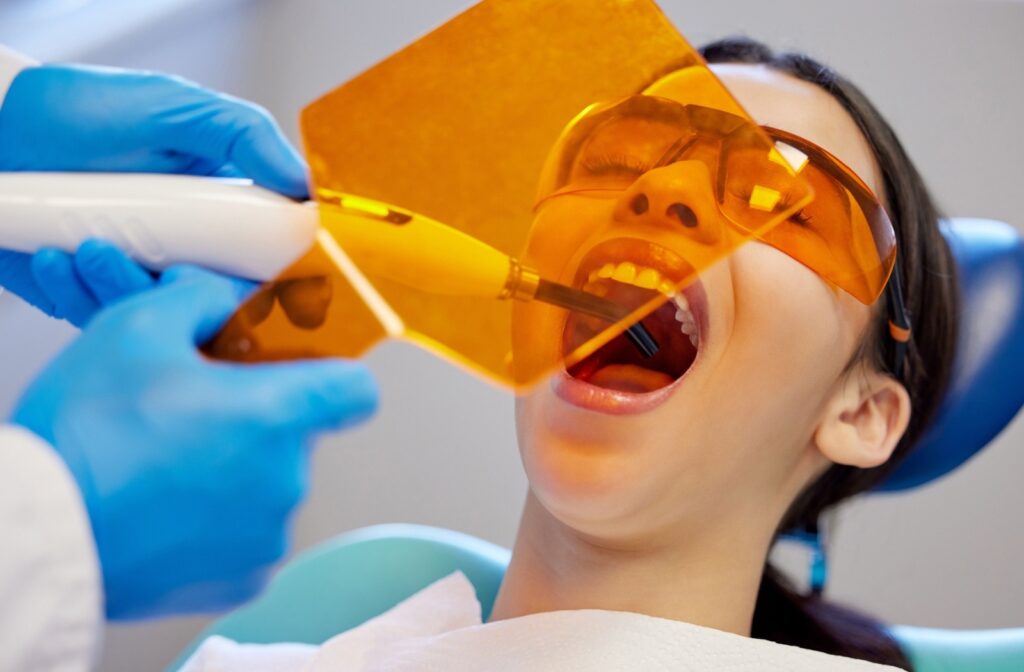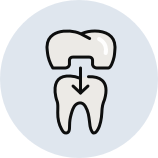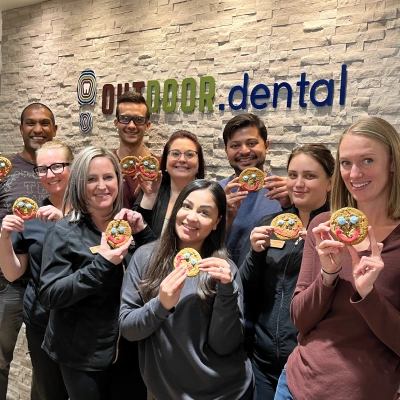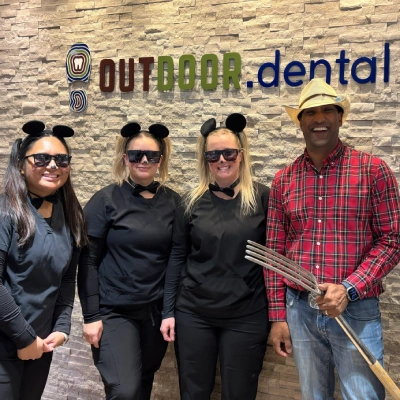You just left your dental appointment, and your teeth have that smooth, clean feeling: You can’t stop touching them with your tongue. It’s a great sign of a healthy mouth, but sometimes it comes with a little surprise when you take a sip of cold water or bite into your next hot meal. If your teeth feel a bit sensitive after a thorough cleaning, you might wonder if it’s something to worry about.
Rest assured, this can be a common experience after a cleaning for some. In fact, it’s very normal for your teeth to feel sensitive for a short time after your hygienist has worked to remove plaque and tartar buildup. This sensation is usually temporary and a sign that your teeth are now cleaner and healthier.
A Normal Part of a Healthy Smile
Feeling a little sensitivity after a dental cleaning is often a good thing. Think of it as a signal from happy teeth that your hygienist did an excellent job removing the harmful buildup that can lead to cavities and gum disease. This temporary feeling is just your teeth and gums adjusting to their newly cleaned surfaces.
Why Your Teeth Feel Sensitive After a Cleaning
When you leave your appointment, your smile is at its cleanest. This fresh start can sometimes come with temporary sensitivity for a few simple reasons. Understanding the cause can help you feel more comfortable with the process.
Removal of Tartar & Plaque
Tartar and plaque can act like a blanket over your teeth, covering them from the outside world. When your hygienist removes this layer, the newly exposed tooth surface can be sensitive to temperature changes, air, and pressure. This is your tooth’s enamel adjusting to its new environment.
Nerve Discomfort
The specialized tools we use during a cleaning work hard to remove stubborn buildup. The vibrations can sometimes temporarily aggravate the tooth’s nerve. This feeling is mild and usually fades very quickly after your appointment is over.
Pre-Existing Tooth Sensitivity
If you already have sensitive teeth, a professional cleaning can briefly heighten this sensation. The process doesn’t cause the sensitivity, but it can make you more aware of it for 1–2 days.
Gum Inflammation
Your gums might feel a bit tender after a cleaning, especially along the gumline where your hygienist may have focused. This is a normal inflammatory response as your body reacts to the deep cleaning process. This tenderness should ease within a day or so.

How Long Sensitivity Lasts & How to Soothe It
For most people, any tooth sensitivity or gum tenderness after a routine cleaning is typically short-lived. The duration often depends on the amount of buildup that was removed. Here’s a general timeline you might expect:
- Routine cleaning: Discomfort typically lasts anywhere from a few hours to a couple of days.
- Significant buildup: If you had a lot of tartar removed, you might feel sensitivity for up to a week.
You can take a few easy steps to manage any discomfort and get back to feeling great. These tips can help you feel more comfortable as your teeth and gums get used to their new normal.
- Be aware of your food and drinks: Try to avoid foods and drinks that are very hot, cold, acidic, or sweet for the first 24–48 hours to protect your teeth. Learning about the top foods to avoid for healthier teeth can also help in the long run.
- Brush gently: Use a soft-bristled toothbrush and gentle, circular motions to avoid irritating your teeth and gums.
- Use a desensitizing toothpaste: Switch to a toothpaste designed for sensitive teeth, which can help block sensation from the tooth surface to the nerve.
- Try a saltwater rinse: Mix 1 teaspoon of salt in a glass of warm water and swish it in your mouth for 30 seconds to help soothe sore or swollen gums.
Pain After a Deep Cleaning
A deep cleaning (also known as scaling and root planing) is more extensive than a standard cleaning. It involves cleaning below the gumline to treat gum disease. Because of this, it’s normal to experience more noticeable sensitivity in your teeth and gums afterward.
The Healing Time of Gums
Your gums may feel sore and tender for several days, but this should improve steadily. Complete healing after a deep cleaning can take a week or more, depending on your initial gum health. Following your dentist’s aftercare instructions is key to a smooth recovery.
Aftercare for a Deep Cleaning
You can follow the same tips for a routine cleaning, like gentle brushing and avoiding extreme temperatures. Your dentist may also provide specific instructions to help your gums heal properly and comfortably. It’s important to follow their personalized advice, as they tailor it to your needs.
When to Call Your Dentist
While temporary sensitivity is normal, certain symptoms may point to another issue. It’s a good idea to contact your local Seton dentist if you experience any of the following symptoms.
- Discomfort: If you experience discomfort that is sharp, throbbing, gets worse over time, or discomfort that is focused on a single tooth.
- Sensitivity: If your sensitivity continues for more than 2 weeks past the date of your initial cleaning.
- Swelling: If you notice swelling in your gums, cheek, or face.
Personalized Dental Care in Seton
Regular cleanings are part of the foundation of a healthy lifestyle, just like getting outside for a walk or a bike ride. A little post-cleaning sensitivity is usually normal, and typically indicates a healthy, happy smile. If you have any concerns or are ready for your next check-up, our team at Outdoor Dental is here to help. Book an appointment with one of our trusted dentists in Calgary today!























